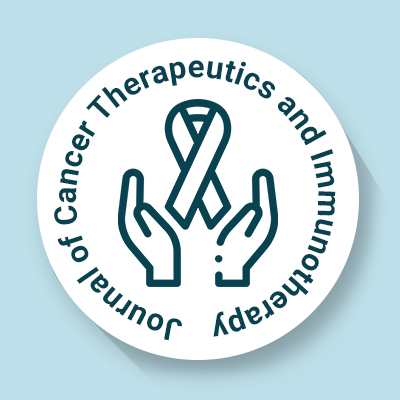
Journal of Cancer Therapeutics and Immunotherapy
OPEN ACCESS

OPEN ACCESS
Cancer is a serious disease that defines the uncontrolled progress of the abnormal cells that can attack neighboring tissue and metastasized to other parts of the body. Not like benign tumors that are partial to their area of origin, malignant tumors can be deadly if they are not spotted and treated early. More than 100 kinds of cancer occur, disturbing different parts of the body.
Symptoms of the cancer varies on the basis of type and position, but commonly featured a lump, unusual bleeding, a persistent cough, unexplained weight loss and modification on bowel habits. Though, these symptoms might also be linked with various medical issues, which makes early analysis.
Multiple factors play a role in cancer development, with tobacco consumption being a major contributor, responsible for about 22% of deaths linked with cancer. Also, lifestyle elements like obesity, unhealthy eating, insufficient exercise and high alcohol intake also improve the risk. Environmental factor such as ionizing radiation and contaminants, can initiate the growth of the cancer cells.
There are some infections that are required for the growth of the cancer and these includes viruses that cause Hepatitis B & C, Human Papillomaviruses (HPV), Epstein Barr viruses that are associated to various forms of cancer. HIV doesn’t cause cancers like Kaposi’s sarcoma directly. Preventing cancers associated with these viruses is possible through vaccination against HPV and Hepatitis B.
Lowering cancer risk required changes in lifestyle including refraining from tobacco use, keeping a healthy body weight, eating a well-balanced diet abundant in fruits, vegetable and whole grains, controlling alcohol consumption, and protecting skins from too much sun exposure. Routine screenings are required for the early detection on specific cancer, especially cervical & colorectal cancers. However, the efficacy of breast cancer screening continues to be subject of discussion.
Cancer treatment generally comprises a mix of surgery, radiation therapy, chemotherapy and targeted therapy. New therapy like immunotherapy, are transforming cancer treatment by using the immune system to combat cancer cells. Palliative care is crucial for patients with late stage cancer, concentrating on alleviating pain and increase quality of life.
The outlook varies based on the type and stage of cancer at the time of diagnosis. In the United States, the overall five year survive rate for all cancer type is about 66%. However, in developed nations, children under 15 who are diagnosed with cancer have an 80% chance of surviving.